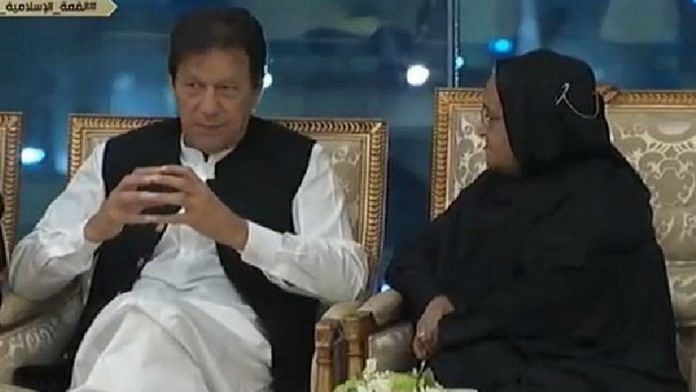Every year at this time, an annual debate in Pakistan begins on ‘learning lessons from 1971’, ‘apologising for 1971’ and ‘accountability for 1971’. All that is fine, but what exactly happened in 1971 that needs ‘learning lessons’, ‘apologising’ and ‘being accountable’ for? We would like to offer our apologies though, our memory of the history is as good as that of Ghajini.
Why does Pakistan debate this ‘apology to Bangladesh’ question when we have been taught since school that nothing big really happened in 1971? From what we would rote learn as the “salient features of the creation of Bangladesh” — not the fall of Dhaka, or Sakoot-e-Dhaka — was that it was a big bad world and we were on our own then. The enemy’s ‘evil eyes’ were set to destroy us and they came in all shapes and sizes, even then. Innocent as ever, we couldn’t fathom the inimical designs of the enemy, even then. We were the good guys who never did anything wrong. The politicians were to be blamed, even then. Hindus and Jews were ‘conspiring against us’, even then. There were both real patriots and the State-sanctioned traitors — we could take our pick. Everything was picture-perfect, so we felt like surrendering.
What apology?
Having been fed this content all our life and then coming face-to-face with someone from the other side of the conflict, we realised that fact is indeed stranger than fiction. The fiction was of avenging the defeat (even though it wasn’t a defeat at the same time) someday. We were living with the dream of taking ‘badla’ (revenge) from India but teaching children that it was anything but a defeat. How is Pakistan expected to learn a lesson from a debacle that first needs unlearning in national discourse? The front page of Dawn the morning after the surrender (17 December 1971) claiming “War till victory” captures the national policy in a nutshell, 50 years of Bangladesh or 74 years of Pakistan.
Pakistan owes an apology to Bangladesh, it is said. An apology for the war excesses, an apology for the discriminatory treatment meted out to the Bengalis in East Pakistan. The closest Pakistan came to an ‘apology’ was a ‘regret’ from former president General Pervez Musharraf during his visit to Dhaka. The officials from Bangladesh over the decades have demanded an official apology from Pakistan, the response to which has often been: ‘let us bury the hatchet and move forward’. Asking Bangladesh to forget everything and move on, while promising Pakistani people they’ll ‘avenge 1971 with India’ — how does that work?
Also Read: 50 yrs of 1971 war: How forces, intel, politicians jointly made it India’s finest military hour
First step for Pakistan
Accepting the truth could be the first step towards an apology. Actual truth, not the ‘War-till-victory’ kind or the one where you produce films like Khel Khel Mein (2021) to further the same propaganda: Makkaar dushman India is behind everything that happened in Bangladesh and now it is behind everything that is happening in Balochistan. Surely, yeh sab kuch Hindustan he karwa raha hai. The denial of truth continues, even today. A documentary about 50 years of Bangladesh tries to wash away the mass rape of Bengali women in camps. Oh, for troops to defend the country and have the “time and luxury” to rape is impossible? In denial, even sexual violence becomes “a bizarre act of grotesque magic”. And that Sheikh Mujib didn’t want a separate country but it was the “international powers who misused the people.” Believe it if you like, for the same constituency would endlessly debate the number of 93,000 soldiers taken prisoner of war in India. They would also believe General A.A.K. Niazi saying “Dacca will fall only over my dead body”, and then signing the surrender document the next moment.
Those who have built the façade of winning the war and losing half the country continue to sell the event as a ‘win’, in which they were both a victim and a winner – ‘yeh 1971 ki fauj nahin hai’ (this isn’t the army of 1971), ‘yeh 1971 nahin jab ek tv channel tha’ (this isn’t 1971, when there was only one TV channel), ‘media is free now’. Today’s media is as free as the several front pages of Dawn in 1971: “Final victory in the war of survival shall inshallah be ours,” as proclaimed by General Yahya Khan. So who is even looking for accountability for 1971 beyond the debating circuit? Definitely not the current prime minister Imran Khan, who went through the same ordeal of buying the in-house propaganda of 1971 and later finding out the truth from the other side.
Touchwood. Some things never change — like the paranoia around citizens demanding equality and rights being named agents and traitors. On the 50th victory day, another question that the mainstream television, not as uneasy as holding war criminals accountable, asked was: “How did Bangladesh progress economically at this pace leaving Pakistan behind?” ‘Leaving Pakistan behind’ — the answer lies in the question. Called a “basket case” at the time of its birth, Bangladesh may not have an atom bomb or the delusions of becoming a leader of the Muslim ummah, but it does have a taka that is worth 2 PKR and the strongest growing economy in the South Asian region. And if there is no fault in their stars, by 2030, Pakistan may even be taking loans from Bangladesh. Now that’s a win win for all.
The author is a freelance journalist from Pakistan. Her Twitter handle is @nailainayat. Views are personal.
(Edited by Srinjoy Dey)



